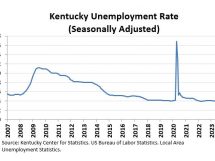ORLANDO, Fla. (June 21, 2018) /PRNewswire/ — In a major decision released today, the U.S. Supreme Court ruled 5-4 that states can require sellers to collect and remit sales tax on sales made to people in the state, even if the seller has no physical presence in the state. This decision has significant implications for nonprofit organizations that sell products across state lines.
“This is an earthquake in the marketplace. Nonprofit organizations that sell merchandise via the web will need to pay careful attention to state tax law developments following this decision,” stated Mike Batts, managing partner of Batts Morrison Wales & Lee. “Without a doubt, state governments will begin to assert the right to require sales tax collection by out-of-state sellers (both nonprofit and for-profit) who ship goods into their states.”
The decision by the Court upends decades of law in which the principles of the 1992 Quill case (Quill Corporation v. North Dakota) have governed. Under the Quill principles, a state could generally not require a seller to collect and remit sales tax for sales made to people in the state unless the seller had some kind of physical presence in the state (employees, offices, inventory, property, etc.). In recent years, as internet sales have become an increasingly large part of commerce, states have become both creative and aggressive in defining what constitutes a “physical presence” for this purpose. Today’s decision by Justices Kennedy, Thomas, Ginsburg, Alito, and Gorsuch opens the door to states requiring collection and remittance of sales tax by sellers regardless of whether they have a physical presence in the state. The opinion written by Justice Kennedy stated, “…the physical presence rule of Quill is unsound and incorrect.”
One factor that seemed to affect the decision by the justices was that the state of South Dakota (the plaintiff in the case) had in place provisions limiting the impact of the law on smaller out-of-state sellers. For example, according to the opinion written by Justice Kennedy, the South Dakota law requiring sellers to collect and remit sales tax applied to merchants who “on an annual basis, deliver more than $100,000 of goods or services into the State or engage in 200 or more separate transactions for the delivery of goods or services into the State.” The decision left unclear whether or to what extent such a threshold would be necessary for a law to be considered constitutional.
Compliance with sales tax laws can be cumbersome. Not only do most states impose some form of sales tax, but a number of local governments do, as well. The result is that sales tax rates can vary by city and county. A number of software applications have been created to help sellers comply with the myriad taxing jurisdictions.
Nonprofits selling merchandise across states lines will likely have to dive deeper into this area of compliance soon as a result of today’s Supreme Court decision.




















Add Comment